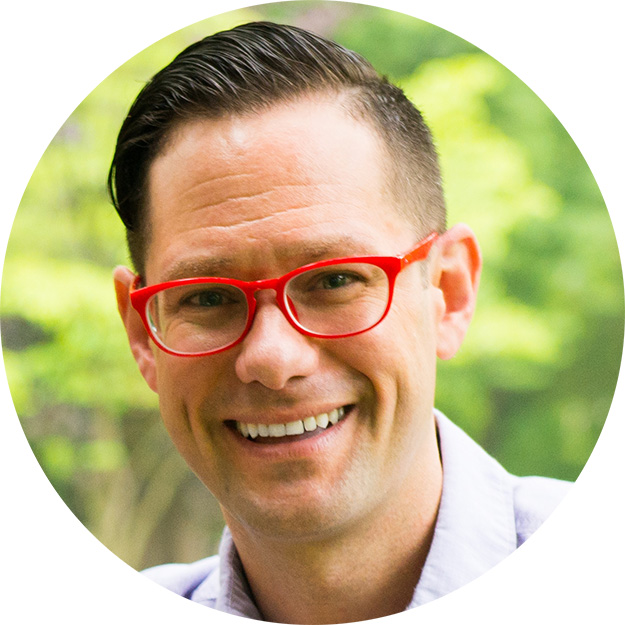An interview with Doug DiMartile
We recently interviewed Doug DiMartile, a member of the Chronic Workgroup. Doug had some incredibly thoughtful insights we wanted to share - most importantly, that it is the individuals we serve who lead the way through this work, not us.
The human being matters most - not the place that will become home.
What does it mean to house a person? What does it mean to say we’ve housed 186 chronically homeless individuals?
It means we’ve ended a collective 1,015 years of homelessness, sure. We are making incredible progress. For my part, however, I want to know more. I want to understand each of those 186 individuals — what works and what doesn’t work for them.
These individuals are our guides to getting it right. We must learn from them.
As providers, we often have no idea — nor could we, until we stop and listen closely — about the lived experience of each individual we serve. If I fail to ask those I serve what they think and if I fail to take their lead, I fail them. As providers, it is critical that we value the power of human connection - that feeling that makes you feel embraced, understood, seen, and safe.
Believe it or not, finding housing can be scary. Many, many individuals experiencing homelessness have unfortunately experienced significant trauma and anxiety in their lives. Taking the risk to exit homelessness — a rhythm of life that many individuals I serve experience as predictable — in order to become housed on your own often instills immobilizing fear. So, I make time for levity and laughter. When we laugh, our fear and anxiety mechanisms can’t fire up — neurologically, our brains just don’t work this way.
As an example, a middle-aged man I was working with suddenly became very agitated at a housing surge, just after he received a housing offer. He wanted to leave the event, return to shelter, and not accept the unit. “Let’s just walk back,” he said. “I can’t be housed. I don’t have a job. I don’t have a purpose.”
While we walked, he explained that he would somehow become isolated from the world once he was housed. His fear was real; after being homeless for so long, he didn’t know how to manage a home without also having work — something that felt grounded, normal, and known. So we talked. And talked. He cried a bit, but we also had some laughs and cracked some silly jokes. And we talked some more. Ultimately, he accepted the housing after we came up with a plan for him to work with a case manager who could help him continue working towards employment.
When someone feels seen, heard and understood, it’s easier to help them resolve their challenges. And believe me, becoming housed can have a set of challenges that are daunting, especially for people who have had traumatic experiences. Obtaining a complex set of housing-related documents can feel insurmountable, but if we can get to the root of the fear and worry, and validate it, it becomes easier to break the larger concerns into individual smaller tasks that no longer appear so daunting.
In all honesty, my first job in human services was one of the worst experiences of my professional career. I was terrified. Who was I to think I could help? I came to this work with so many privileges by birth — advantages that many of the people I serve didn’t have.
I see new employees experience this same existential crisis. But now, I am well equipped to offer them guidance and support so that they do not themselves become overwhelmed. First, you have to dive into the learning and the listening — and even then, you’re not always going to get it right. Or have all the answers. You can’t possibly because each individual is so unique... which requires more listening.
That’s where Boston’s Way Home comes into play. It gives me the chills to think about how much we can accomplish together; it is a privilege to be a part of a group where each person at the table is able to share their special expertise, long experience, and ask the really hard questions.
Much of our work involves a suite of services with silly acronyms, but we’ve each learned so much about how our colleagues work, who their programs serve, and why. This workgroup has accelerated the process of ending chronic homelessness immeasurably. And let’s be honest — I can’t complain about XYZ Agency, because I’m sitting next to someone who represents that agency, who, by the way, is someone I like and appreciate. It’s a real personal context.
Because we are working together, because we generate results together, we now collectively have a healthier, unified portrait of the homeless community. Every day, I become more and more optimistic, especially when I see people smiling and laughing who have many, many more problems on their plate than I do.
Each individual that I have met and served through this work has been touched by important person somewhere in their life. To offer hope, I offer these guests the vision as I see it in my mind's eye - each of these important people, sometimes a helper along the way, is a shining bright spot. Together, those bright spots collectively create a powerful constellation of support and hope that more important people will cross their path ahead. I’ve been privileged to enter people’s inner landscape in a raw and sensitive way and I honor that. I only hope that I, too, can become one of those bright spots.


